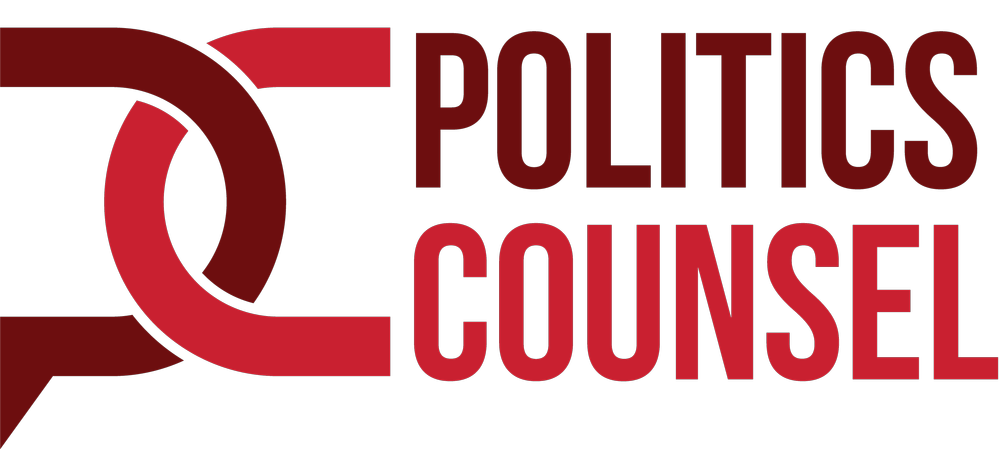By Mark R. weaver
November 10, 2020
This article was originally published in Newsweek.
Many political soothsayers predicted that voters would robustly rebuke President Donald Trump's bid for reelection. Joe Biden's anemic victory burst that bubble.
Rather that reflect on the biases that clouded their view of reality, some now suggestthat a Biden presidency will somehow heal our frayed nation. While only charlatans and chuckleheads claim to foresee the future, I don't recommend placing a bet on national unity in the years ahead.
That's because Donald Trump wasn't the reason for the divide that vexes us—it's been festering for decades. Years before Barack Obama became president, he lamented how the country had already split, red against blue. Yet, like Trump, Obama offered rhetoric and actions that further alienated us from one another.
During the Obama years, waves of anger frothed on the crosscurrents of American political discourse. We saw tumultuous riots in Baltimore and Ferguson and winced as social media slap fights became the rule rather than the exception. Further dissent emerged, via thousands of Tea Party rallies, where aggrieved Americans protested government transgressions—though in a way that left windows unbroken, stores unlooted and police officers uninjured.
Did the gap grow worse over the last four years? Undoubtedly. But like a political tumor, this domestic discord would have swelled no matter who inhabited the White House.
We're a country in conflict. Swapping leaders won't change that any more than changing hats will quell a migraine. Resolving an obstinate problem requires dogged digging for the underlying cause.
Finding the source of our disunity is imperative because national conflict can occasionally turn deadly. More than 600,000 died in the American Civil War. One side advocated state sovereignty and held a despicable devotion to slavery. The other advanced national unity through God-given freedom and equality. It was more a clash of ideas than culture.
Contrast that with the 1994 Rwandan genocide, where racial and class disparities exploded into the butchery of more than half a million people who shared a language, religion and regional history. The slaughter was identity politics gone mad. Ideas didn't matter—but what someone looked like or which group was in power did.
We all want to forestall conflicts, especially those based on identity. So, how to assemble a national jigsaw puzzle that seems like a jumble of pieces from two different boxes, one red and one blue? I suggest an agreement on a national touchstone. Happily, the Founding Fathers provided us one. In 1776, when those bold men gathered in Philadelphia to declare independence, they realized the world would want to know why the new nation was forming and what ethos it would establish.
In the Declaration's introduction, a line stands out that states plainly what our nation believes: "We hold these truths to be self-evident, that all men are created equal, that they are endowed by their Creator with certain unalienable rights, that among these are Life, Liberty, and the pursuit of Happiness."
This is the American creed. If anything should unite us, it's this sacred notion. It acknowledges that individuals inherit rights from God and legitimate governments are only formed by the consent of, and with deference to, those rights-endowed people. It took a few centuries for this "promissory note"—as latter-day Founding Father Martin Luther King, Jr., called it when praising the "magnificent words" of the Declaration and the Constitution—to become more perfectly fulfilled. Yet fulfilled it was.
No one is required to believe the American creed and we, rightfully, don't jail or exile those who sneer at it. Yet that doesn't alter its underlying truth or salience. And our national estrangement stems from a baseline misunderstanding of it.
Americans are not tribesmen. We're individuals fully responsible for our own actions and abjectly unaccountable to any group—particularly one based on things over which we have no control. Judging people on such immutable characteristics is reprehensible. This is why, for example, our nation rejects as bigotry all race-based preferences and distinctions. Herding people into groups and pitting them against each other is anti-American because it's antithetical to our creed. Worse yet, it inflames our current national discord.
In his Gettysburg address, Abraham Lincoln wondered whether a resentfully riven nation could long endure. This compelling question hung over the Obama era and lasted through Trump's tenure. It will remain relevant during the Biden administration.
If Americans are to unite, it won't be around a politician or a political party. Joe Biden, a doddering D.C. dinosaur, can't heal the wounds—perceived or actual—caused by President Trump. Nor is he likely to mend or even confront the damage inflicted by the hateful sliver of the populace that burns, loots and defaces cities and our very system of justice.
If you expect a politico to deliver unity, you'll be waiting longer than a calendar full of election days. That's because reconciliation isn't the province of politicians—it falls to us. We'll come together only when we embrace the notion that we are a nation of individuals, responsible and accountable for ourselves and owing neither allegiance nor alliance to a tribe.
Nurturing unity requires us to rebuff those who diverge from our national creed and uplift those who speak and live it. Let's look beyond Biden and Trump; political parties will eventually perish. Yet our American creed, when kindled and commended, can last forever.
Mark R. Weaver is an Ohio attorney and national crisis communications expert who formerly served as spokesman for the U.S. Department of Justice in Washington. He is the author of the book "A Wordsmith's Work." Twitter: @MarkRWeaver
